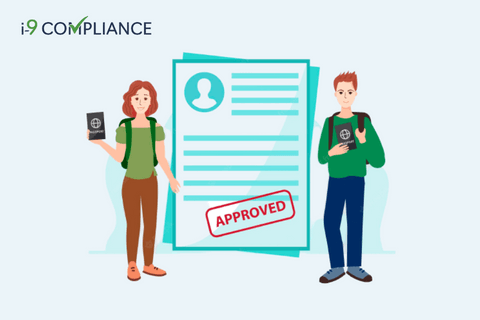Visa Processing Backlogs Continue To Cause Hardships

January 9, 2023
Slowly, offices have begun returning to somewhat normal routines after the lockdowns during the COVID-19 pandemic. Unfortunately, the agencies responsible for issuing visas and work cards continue struggling to recover from the pandemic. For example, the U.S. Immigration and Citizenship Services (USCIS) and consular posts overseas have remained closed despite many businesses reopening. Furthermore, in 2020, the president prohibited issuing visas, though he allowed limited exceptions. This ban stayed in place until January 2021.
In January 2021, the USCIS began issuing visas. Unfortunately, many countries still have travel bans in effect, and these effects will remain until the end of the year. As a result, the increased demand for work visas that resulted from the closures caused a considerable backlog in the availability of visa appointments. Furthermore, consulates also face a significant backlog.
Many employers of professional workers rely on work visas, such as H-1B and L-1. These professionals may remain and work in the United States. However, they cannot travel outside of the United States due to the unavailability of visas and travel bans. As a result, workers who choose to leave the United States may find it difficult to return. In many cases, they may have to wait months or years to return.
According to the State Department, they saw over 700,000 non-immigrant visas issued each month the year before the pandemic began. However, this rate dropped considerably during the first year of the pandemic; it still has not fully returned to pre-pandemic levels. Furthermore, it remains challenging to obtain a visa appointment. These challenges have made it difficult for individuals to travel for personal and business matters.
The State Department has stated that it remains committed to improving visa processing. In light of this, however, the department admits it will take quite a while to clear the backlog. Nevertheless, these are some steps they could take to improve their service.
One step they could take is to accept more work visa applications from other countries. Otherwise, consulates could include L-1 and H-1B in the high-priority categories. The department could also accept more requests for expedited appointments from professionals who want to help care for ill or aging parents. Currently, anyone applying for an expedited appointment must provide a death certificate as proof of their need.
These are some ways the State Department could improve its visa processing. These steps would help both businesses and their professional workers.
When it comes to your work, automation makes eligibility verification quick and seamless. Get a head start today with I-9 Compliance.